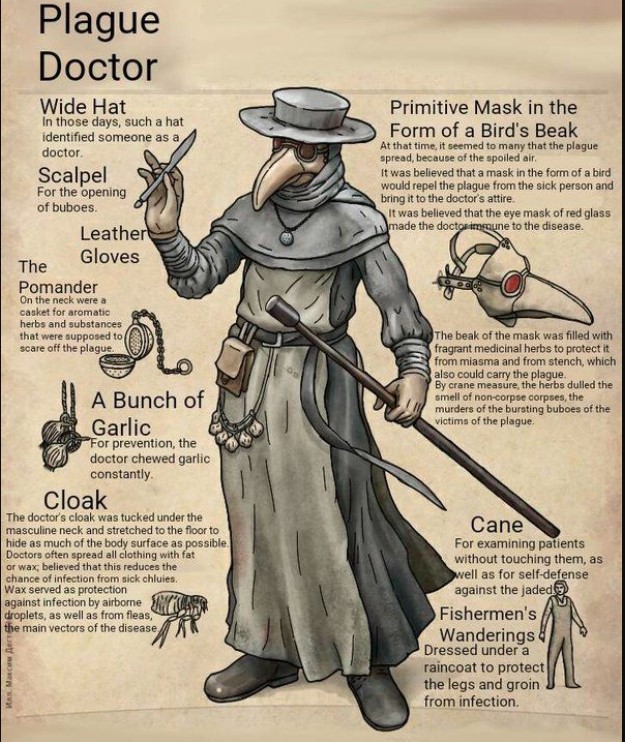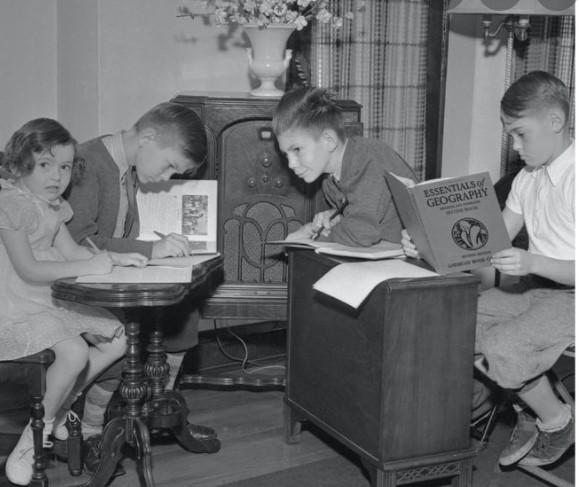
In searching for some medieval pictures for a slide show presentation on constructing a gambeson, I stumbled upon this descriptive photograph of a plague doctor of the 17th century. Immediately, a quote attributed to Mark Twain popped into my head: History doesn’t repeat itself but it often rhymes.
Last year, the schools closed down for the Covid 19 Pandemic, and people sobbed about the tragedy of it all, crying out The sky is falling! The sky is falling! In searching for photos of early 20th century Houston school buildings for a project, I stumbled upon this historical rhyme:

I often discover historical rhymes. Yes, perhaps I unconsciously search for them because they give me a calming perspective. After the devastating Harvey storm in 2017, I watched again an original video made by Thomas Edison of a historical rhyme, the 1900 Galveston Great Storm, a hurricane that killed upwards of 6,000 people. Current reports of devastating results of climate change historically rhyme with the devastation of the Dust Bowl of the 1930s. Historical rhymes of war related tragedies stretch across the ages: War is Hell in any place, time, or language.
By pointing out today’s Covid Pandemic with the medieval Plague Doctor as yet another historical rhyme, I do not imply that our tragedies are inconsequential. Of course not. But we can apply the lessons learned from the past. Mark Earnest, M.D., Ph.D., concluded his NEJM article entitled, On Becoming a Plague Doctor, with this history lesson learned:
… I imagined what it would have been like to care for patients during the Black Death. I realized I’d been far too hard on my predecessors from the Middle Ages. A 14th-century plague doctor faced risks far higher than mine. Of the 18 men registered as plague doctors in Venice in 1348, five died. Twelve fled.1 I can scarcely imagine how terrifying it must have been to live in a city terrorized by bubonic plague. Perhaps my error was imagining that patients were more terrorized than comforted by the arrival of such a fearsome figure. Maybe that’s just wrong — maybe patients were comforted that someone had the commitment to set aside his own fear and come to them in their moment of need. Perhaps they were just grateful they were no longer suffering alone.
Yes, I like historical rhymes. They calm me. They remind me that we have been there, done that, and came through on the other side.
